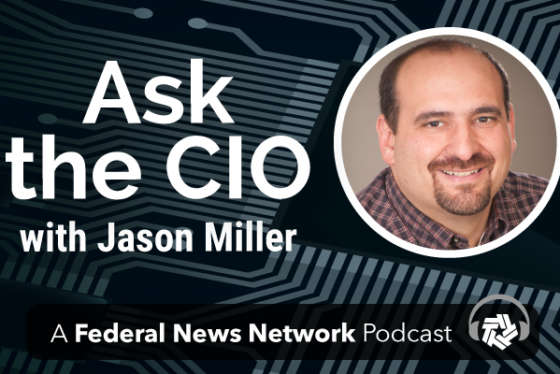By Jason Miller
Executive Editor
Federal News Radio
In the more than 15 years since Congress passed the Clinger-Cohen Act of 1996, technology and the role of chief information officers has changed dramatically. But so has the way CIOs are trained.
Ari Lightman, the director of the CIO Institute at the Carnegie Mellon University, said over the last decade, the courses to help senior technology managers’ meet their mission has evolved to be more about being an officer and less about managing information.
“It got started with some of the stipulations from the Clinger-Cohen Act, but now we are seeing such as demand for CIO education when you look at mobility, unstructured data stores, when you look at globalization, security and privacy, all of these issues we try to address through the program,” Lightman said. “There are certain things that are stalwarts in terms of being taught year-after-year, but we try to refresh the program as much as we can based on the students’ interests to make sure it’s relevant in this day and age.”
The CIO Institute is one of seven affiliates of the CIO University run by the General Services Administration. The eight-month program costs about $2,500 to $3,000 per module and there are eight modules.
The institute holds classes in Washington and Arlington, Va. and accepts about 60 students a year. Students come from both industry and government, Lightman said.
“The way that we crafted the program is we didn’t want to create it as an extension to an existing Master’s level body,” Lightman said. “Let’s create something that is robust, something that is stand alone by itself and let’s create it so we can do peer-to-peer executive education in an open enrollment environment. What that means is, you get 30 people who are all experiencing the same issues, the same unique nuances associated with doing their job and they learn from each other.”
The eight modules cover a wide variety of subjects:
- IT Acquisition and Program Management
- IT Management
- Information Assurance
- Leadership
- E-Commerce and E-Government
- Process and Performance Management
- Enterprise Architecture
- Strategy and Planning
“The instructors are there to do market research as well as do instruction,” he said. “We always are finding out from students what is relevant and what is top of mind. The students are required to review each class, each structure and provide feedback to us about what is old hat or not necessary and what we should focus on. We have a community of CIO-I alumni and we put together a social network and poll them on a regular basis about what is important to you.”
Lightman said the institute is developing a chief information security officer course for 2012 in addition to the CIO program. It could consist of five intensive days over three months, include a practicum at the end where the students would work on a project at the end.
RELATED STORIES:
NDU’s McCully promotes continuous learning for CIOs
CIOs have their own university
Copyright
© 2024 Federal News Network. All rights reserved. This website is not intended for users located within the European Economic Area.





